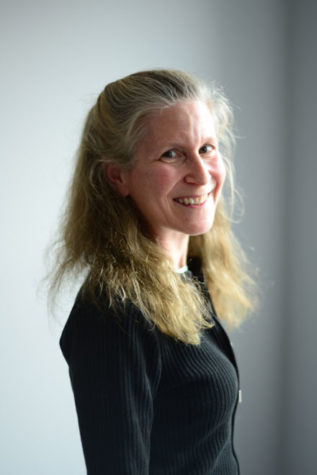
Zoe Weil
Zoe Weil
Zoe Weil is the cofounder and president of the Institute for Humane Education. She’s the author of six books, including Above All, Be Kind: Raising a Humane Child in Challenging Times, and the Nautilus Silver Medal winner Most Good, Least Harm: A Simple Principle for a Better World and Meaningful Life. Weil lives in Surry.
What is humane education?
Humane means having what are considered the best qualities of human beings. I’ve asked thousands and thousands of people what the best qualities of human beings are, and the lists are always very similar. Nobody says greed or violence or hatred. Humane education links the issues of human rights, environmental preservation, and animal protection with the goal of helping people to understand how they can make a difference; how they can be “solutionaries” for a more just, sustainable, and peaceful world.
Tell me about the solutionary school you are in the process of creating.
In schools, problems are often presented in black or white. Like with debate teams: students are taught to research, argue, and win for their side. I see the value in becoming that kind of critical thinker and learning persuasive skills and articulation skills, but is that really the best we can do? The goal would be for students to work together collaboratively, use their various skills and interests, and come up with solutions to problems. We are bringing the first solutionary school to New York City as a way to really showcase this kind of education. This will be a flagship school and a model for replication everywhere. I’m really looking forward to solutionary schools opening here in Maine and across the world.
You have a divinity degree from Harvard University. What’s the relationship between this and humane education?
I wound up in divinity school because I was fascinated by people’s belief systems and their values. I was studying comparative world religions, really trying to understand the impact of values and beliefs in the world. At the time I imagined that I would become a college professor and teach world religions. I ended up going down a different path: everything was slowly but surely leading me toward humane education. What I do now didn’t exist when I was in college or graduate school, so I had to create it.
In Above All, Be Kind, you write about a very active, mindful approach to being kind: really taking into consideration how every living thing is impacted by any given decision, and moving forward with that knowledge. That’s not easy.
Kindness is compassion in action. It means really being aware of the effects of one’s choices. Proximal kindness—that is, being kind to people with whom you interact—that’s hard enough. We have all of these anti- bullying programs in schools because people have challenges just being kind to each other when they’re interacting. How much harder is it, then, to be kind when the food you eat, or the clothes you wear, or the electronics you use, or the products you buy may come with so many effects on other people, on other species, on the environment? It takes a real active will to say, “I’m going to find out about the effect of my choices, so that I can be kind in a very extensive way.”
People might think, “Well, that’s overwhelming. I don’t want to know if it’s going to mean that I have to constantly be looking at all my choices.” I get that, and yet there is something deeply satisfying about striving to live with integrity. I have to look at myself in the mirror everyday and one day I’m going to die. I want to know that I did my best. That I strived to truly be a good and kind person. That’s what this way of thinking allows us to do—not to mention that it creates a more peaceful and kind world. Don’t we all want that for ourselves, for our children, for our grandchildren?
